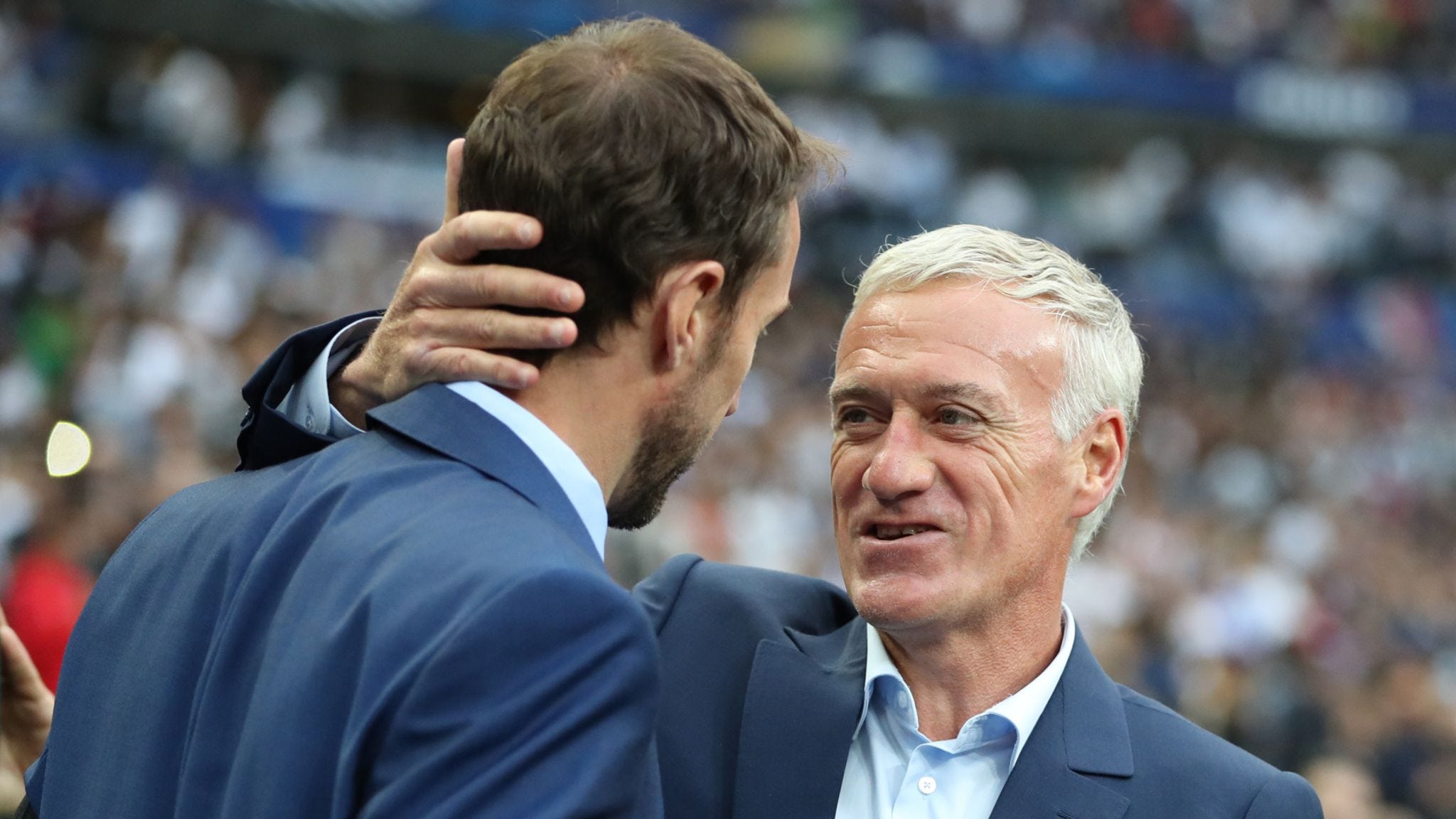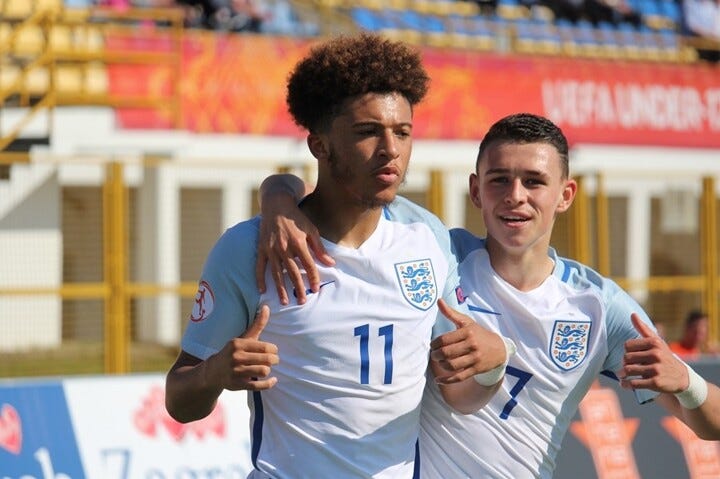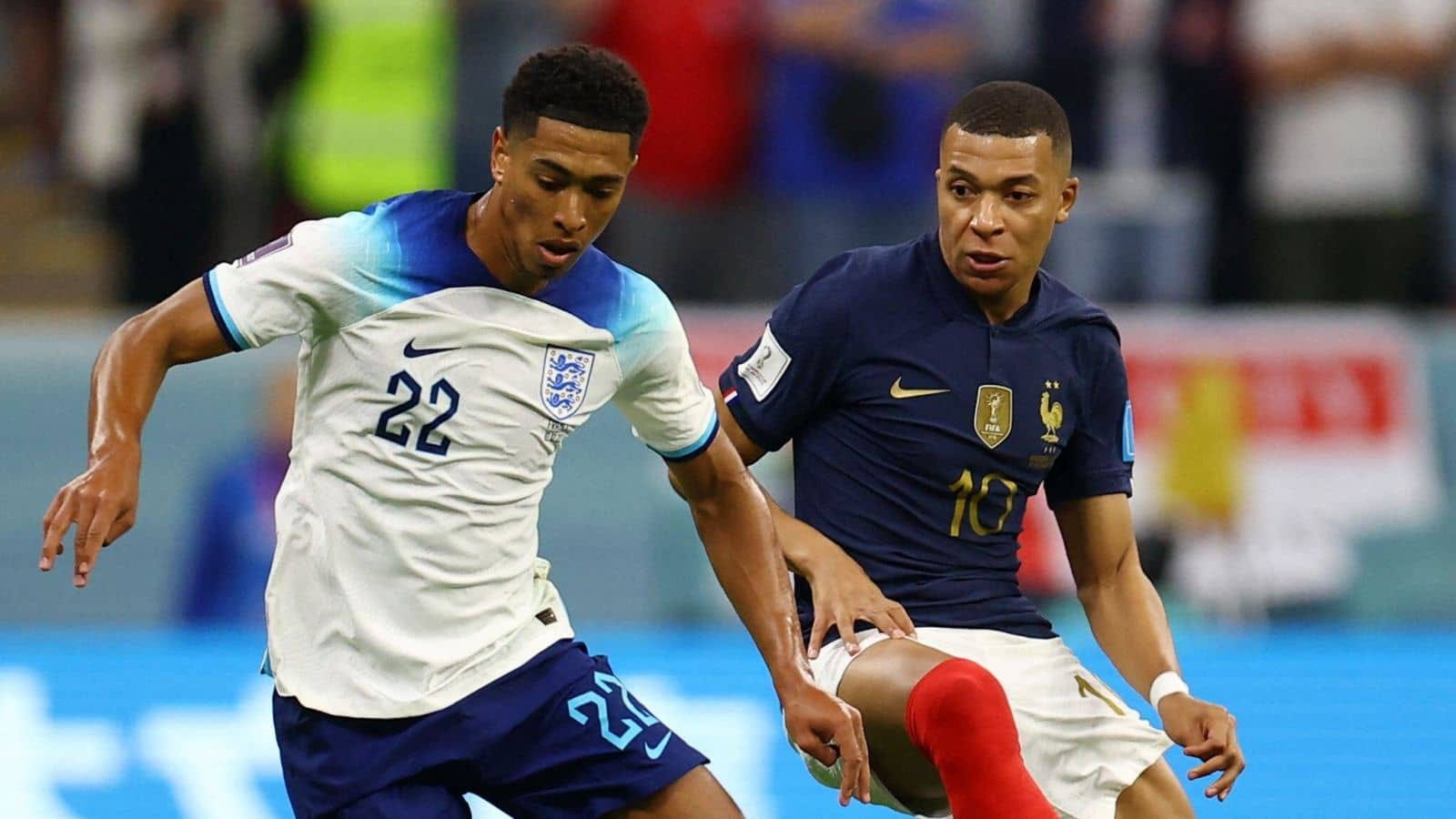England and France: Two Nations Destined to Dominate the International Scene for Years to Come
Going ahead, it will almost feel impossible to separate both nations on the international stage; Qatar felt like a pilot to what is going to be a very long and enjoyable series.
As the international break comes to an end (yes, I can hear your collective joy through the screen), *Frank Lampardian transition*, but in all seriousness, for all the general dividing discourse that the international break brings within the football fans, I, with the few, embrace the chance to watch a new cycle of an international team start to take shape, fall into place or come to an end — sometimes all the above *cough cough Germany.*
This international break comes only three months after the inaugural Winter World Cup in Qatar, which is an interesting standpoint for many nations. This break from the last few poses an interesting dilemma: stick or twist?
While I've been paying attention to a lot of teams over the past weekend, France and England have been the two that have captured my attention the most.
not just the senior team, who both stayed perfect in their respective qualifying games, but the age groups below.
Watching France vs England at the Qatar World Cup was a brief reminder of both teams' elite talent pools; the aid-memoir was even more evident when you watch their various age groups.
The Qatar match-up was lit again, but instead of the baking, sticky, humid air of the Al Bayt Stadium, it was swapped for the crisp, glacial Midlands ambience of the King Power Stadium on the U21 stage.
Despite the gravitas of the fixture not being on the level of a quarterfinal of one of the biggest tournaments in world football, the assemblage of potential superstar players, from Rayan Cherki to Harvey Elliott, was an indicator of the quality of the show that many people would come to expect.
That game finished 4-0 for England, which was flattering but not insulting to the quality they have; the likes of Curtis Jones, Emile Smith Rowe, Oliver Skipp, Noni Madueke, and Elliott, as mentioned earlier, are all players who are held in high regard within top contending clubs in the highest domestic league in England.
In France, despite losing in such a comfortable fashion, they showed for the majority of the game the dazzling skill and aura that the individual players they have possess.
But despite all the flair they control, the capitulation that sometimes afflicts France as a footballing nation was prominent in their performance.
That's where both nations differ in football ideologies. England has a more pragmatic approach in most age groups. The practical approach is not a burden to France's talent. A laissez-faire approach is seen as a suitable method for extracting all the talents that France, a footballing nation, produces.
And both perceptions can be seen no further than the main men in charge: Gareth Southgate and Didier Deschamps.
They didn’t just contest at the U21 level during the break; they also met an age group below, as both their respective U20 sides went head-to-head in a 1-1 draw.
It was an enthralling fixture for the neutral; watching it on the French YouTube feed felt like a chore to the commentator at times. However, it was captivating to watch another set of incredibly talented footballers who could be playing at a higher level but are halted by even more talented players.
A moving roulette wheel of national juggernauts churning out talented young players and spitting them out onto the club and international scene, hoping for one of them to be the next Jude Bellingham.
It’s an understatement to say both England and France have formidable U21 football sides, but it’s a statement that needs to be made; both have performed admirably in past youth competitions.
England prevailed in the 2018 Toulon Tournament, a prominent young football competition hosted annually in France, a more known achievement — and the 2017 FIFA U-20 World Cup tournament was a real validation moment of the talent they have been producing. As well as qualified for the U21 European Championship on many occasions during the last decade.
On the other hand, France won the U21 European Championship in 2016 and placed second in 2019, and there has always been an expectation for them to perform at any level of the international game.
The term “an embarrassment of riches” is synonymous with modern sports teams. A powerhouse quality that is seen from all levels within their international setup. Think Man City’s Centurions, Real Madrid’s various Galáctico squads, the Boston Celtics in the 80s, the 2008 Redeem Team, or the 1992 Dream Team. The Americans coined a term to describe teams stacked with immense talent, inflated by the Europeans, specifically football fans.
The disposal of talent for each respective nation is almost endless, to the point that it leaves the question: what is stopping either side or both sides from dominating the international scene for the coming years? It feels destined, does it not?
First of all, one of the main factors that have a role in a topic like this is catchment areas.
It can be subjective and depends on various criteria, including the nation's size, the quality of its infrastructure and coaching programs, and players' overall talent and passion. Nonetheless, some countries have a long history of producing exceptional football players and have well-established mechanisms in place for developing new talent.
And England and France are often considered to have one of the best catchment areas in football, alongside countries like Brazil and Argentina, but they're among the best in Europe.
Many reasons are outlined, but their purpose in Africa has been vital.
France has a substantial population of African and Caribbean immigrants and their descendants, many of whom have contributed to the country's football talent pool. During the 1980s, the French Football Federation (FFF) heavily courted players of immigrant origin, especially from its former African and Caribbean colonies.
The FFF's efforts to encourage diversity and inclusiveness in football have been linked with the success of the French national team, which has included many black and Arab players throughout the years. The likes of Kylian Mbappé, Paul Pogba, Karim Benzema, and N'Golo Kanté have contributed to the latest success of the nation. Even if we go back further, four of France's 98' winning XI were of foreign descent, one of whom was the Man of the Match on that day and arguably the best player to ever don a Les Bleus shirt.
France has a lengthy history of colonialism and imperialism in Africa, which has shaped its relations with the region.
The French authorities granted independence to the rest of its African possessions, but only on a lead.
During WWII, France created various economic and political relationships with its former African colonies, known as the "Françafrique" system. Under this approach, France kept tight connections with African leaders, offering them military, economic, and political assistance in exchange for access to resources and markets.
The chief reasons for Africans leaving the continent are a lack of economic stability and the political turbulence that results from that instability.
Because of the French colonisation heritage, many footballers who contribute to this richness of skill exist because of their ancestors.
French society has exploited the distribution, and football has capitalised incredibly.
Clairefontaine is an institution synonymous with French talent and where the progression from boy to man goes through.
As for England, despite the constant division among the nation’s football fans about the leading authorities, whether it’s the managers, players, or the FA itself, there is always something dividing the country and its football fans.
However, it is (whether English football fans would agree) a footballing nation that is quietly healing.
The grassroots system is one aspect of player development that has been massively enhanced.
England has a well-established grassroots system that allows youngsters to begin playing football at an early age. The Football Association (FA) operates programmes such as the FA Skills programme, which has helped with player development from an early age. This has helped in the identification and development of youthful potential from early on in a player’s socialisation.
But the reliance on grassroots development was what was holding England back. Its incorporation with cage football has also played a significant role in the technical variation of players coming through, if not a more prominent one.
Cage football’s fast-paced and unpredictable nature helps players improve their close control, dribbling, passing, and shooting skills in small areas; the game fosters creativity and improvisation.
An element of the English game that would usually be seen as a weak point is their retention of the ball and technical usage in tight spaces, which is now seen as a much more vital part of Gareth Southgate’s side.
“The cage was somewhere to be free,” says Maja. “Somewhere without stress or worries about what was happening around you.
A couple of decades ago, cage football was ignored as a tool of development and seen as nothing more than an art form for “amateurs,” despite it gradually becoming an essential element of English football culture; David Beckham, for example, is to have experienced in a lot of cage football while growing up in East London.
“Sadly, 10 or 15 years ago, I think there was a stigma towards young black players in academies.”
“A lot of young players were lost because of the idea that they were trick ponies and showboats. “It’s an old-school mentality that’s changed as coaching has become more scientific.”
Small-sided games and street football have gained popularity in recent years as a means of developing players.
Well-regarded international players such as Jadon Sancho, Phil Foden, Callum Hudson-Odoi, and Chloe Kelly have all cited cage football as a massive part of their development.
Across the board, a dependable grassroots system, an emphasis on technical development, massive investment in coaching, a highly competitive league structure, and vital infrastructure have all aided England in producing outstanding footballers.
What makes France and England such highly engaging nations to observe are their similarities and differences.
France and England have a long and, at times, empathetic footballing history, as well as being regarded as two of the world's best footballing nations, but in the eyes that adore them the most, the feeling of underachievement tends to usually draw.
Despite one being, until Argentina's triumph in Qatar a couple of months ago, the World Cup holders and the other are going through the most successful period of their international entirety in terms of consistency.
Going ahead, it will almost be impossible to separate both nations on the international stage; Qatar felt like a pilot for what is going to be a very long and enjoyable series.
Both countries don't just possess players of incredible talent; they possess hundreds of them.
If the pinnacle is Kylian Mbappé and Jude Bellingham. Warren Zaïre-Emery, Levi Colwill, Carney Chukwuemeka, and Mathys Tel are as burgeoning as a soon-to-be supporting cast could possibly be.







